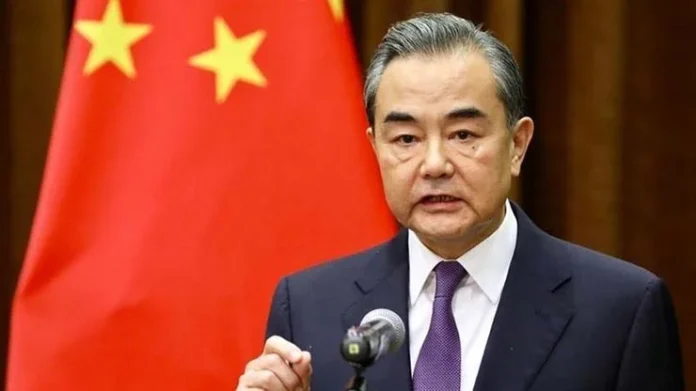In May, when Chinese Foreign Minister Wang Yi made visits to South Pacific island nations and signed plethora of agreements with their leaders, it was felt that Beijing would take these nations into its bind by promising them moons and providing loans of their choices. But call it unpredictability of geopolitics, the more China tries to bring itself closer to them, the more they are drifting away from its diplomatic and economic embrace because after Sri Lanka’s economic crisis, they don’t feel any deeper relation with Beijing will help them achieve prosperity in the region.
A major blow to China’s ambition to have a larger presence in the Pacific was given when Prime Minister of Solomon Islands Manasseh Sogavare categorically stated that he will never allow a Chinese military base in his country. This statement came hours after Beijing held the second China-PICs (Pacific Island Countries) political leadership dialogue in Suva, the Fijian capital, in a hybrid format on July 14.
As per China Daily, the dialogue was attended by Tonga’s justice minister, Niue and Vanuatu’s finance ministers and representatives from Papua New Guinea and Federated States of Micronesia. The Daily further said the Fijian Defence Minister had also participated in the dialogue through video. Overall, the key features of the China-PICs political leadership dialogue, as per the Suva-based Chinese embassy, were “Mutual respect, equality, win-win cooperation, openness and inclusiveness.”
The China-PICs leadership dialogue had been organised by Beijing the same day Pacific Island Forum leaders, including Australian Prime Minister Anthony Albanese, New Zealand Prime Minister Jacinda Ardern were meeting in the Fijian capital. US Vice President Kamala Harris had addressed the Forum and it was here, the Prime Minister of Solomon Islands had assured his Australian counterpart Albanese that he would not offer his country’s land to China for its military base.
Some analysts see it as a significant shift in the strategy of the Solomon Islands, as in April, it had entered into a security agreement with China which envisaged cooperation on humanitarian assistance, disaster response and maintaining of social order. A clause in the China-Solomon Islands agreement also said that China can “make ship visits to, carry out logistical replacement in, and have stopover and transition in Solomon Islands.”
But at the Pacific Island Forum (PIF) leaders’ meet, the South Pacific country’s Prime Minister reminded his Australian counterpart that Canberra remained its security partner of choice and that there would be no Chinese military base in his country. This is seen as a major U-turn by Solomon Islands Prime Minister Manasseh Sogavare. Those who know him are, however, not surprised at all by his decision.
In 2019, to the disappointment of his own countrymen, Prime Minister Sogavare swapped his country’s cordial relations with Taiwan to China. The November 2021 riots that left several buildings and public properties burning in Honiara, the Solomon Islands capital, were seen as the culmination of discontent against the government for its decision to switch diplomatic relations from Taiwan to China.

Some analysts see bribery and money as root causes for the Solomon Islands’ political elites’ conspicuous approach to switch sides. In this regard, they quote Stuart Harris, the former head of Australia’s Department of Foreign Affairs and Trade and known expert on China’s foreign policy.
Just months before extra troops were deployed from Australia in 2003 to the Solomon Islands to pacify inter-island rivalries, Stuart Harris told the Australian Senate Foreign Affairs Committee, “We found that in the Solomon Islands, where governments are totally disoriented—in fact just about destroyed—by interventions of this kind…just a few bribes to the right people at the top and you have undermined the whole governing system.”
But why only the Solomon Islands, political elites in other Pacific countries too, take decisions in accordance with their suitability that moves largely around money, perks and personal profitability. Kiribati’s exit from the PIF is attributed to China’s deeper influence on Tarawa, the national capital of the Pacific country. Although China has denied that it has any role in Kiribati’s decision to leave the PIF, none can ignore the fact that Tarawa had signed 10 trade agreements with China during Foreign Minister Wang Yi’s visit to Kiribati in May. Kiribati President Taneti Maamau, like Solomon Islands Prime Minister Manasseh Sogavare, had switched his country’s diplomatic relations in 2019 from Taiwan to China.
Except for these few Pacific countries in the region where China has, according to the Lowy Institute, provided close to $1.5 billion in foreign aid through grants and loans, there is none who will immediately join Beijing’s bandwagon in the strategically positioned area. Rather, the leaders of 10 Pacific Island countries in their meeting on May 30 with Chinese Foreign Minister Wang Yi in Suva, the Fijian capital, had rejected Beijing’s push for a wide-ranging regional security pact. Samoa Prime Minister Fiame Naomi Mata’afa, who has only been in office for a year, bluntly told Wang Yi on his face that “we have not made a decision as we did not have enough to look at it (the draft communique and the five-year plan). According to Nikkei Asia, the Japanese business daily, “China’s paper called for extraterritoriality, including in law enforcement.”
Lack of trust between Pacific countries and China is widening the gulf in relations between the two sides. On July 14, two Chinese defence attaches were kicked out by Fijian police from the PIF meeting at which US Vice President Kamala Harris, was giving a virtual address. Spying across Pacific countries by China is not a new development. It is a major concern among them.
And, this is one of the reasons why many in the Pacific are uncomfortable at being found to be close to Beijing. For this, the media and civil society’s negative attitude towards China is cited as the reason. During Wang Yi’s visit to the Pacific countries in May, local journalists were prevented from asking questions and recording in their cameras the Chinese Foreign Minister’s speech. The incident has impacted Pacific islanders’ approach towards China in the changed geopolitical situation. Yet the question is: Will Beijing be able to overcome challenges from Australia and the US in bringing Pacific countries’ closer to it?
–The writer is a senior journalist with wide experience in covering international affairs. The views expressed are of the writer and do not necessarily reflect the views of Raksha Anirveda
–The writer is a senior journalist with wide experience in covering international affairs. The views expressed are of the writer and do not necessarily reflect the views of Raksha Anirveda






